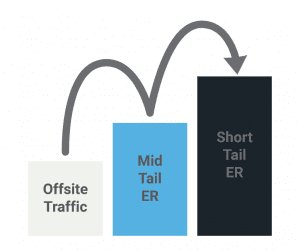Being successful on Amazon cannot be achieved without building a good relationship with your Amazon Vendor Manager. They act as your direct link to Amazon, guiding you through the platform’s complexities.
A Vendor Manager can help you increase visibility, improve sales, and handle challenges more effectively. Mastering communication with them can greatly help your brand reach its full potential on Amazon.
In this guide, we’ll explore the role of an Amazon Vendor Manager and why they’re essential to your Amazon business. We’ll also cover how to build a strong relationship with them and share the best communication practices to help you thrive on Amazon.
Table of Contents
Understanding the Role of an Amazon Vendor Manager
Amazon is one of the biggest players in the e-commerce world, offering countless opportunities for brands to reach millions of customers. However, understanding and thriving in such a large marketplace can be challenging without the right support.
This is where an Amazon Vendor Manager comes into play. They are internal Amazon employees who serve as your main point of contact, acting as a bridge between your brand and Amazon.
A Vendor Manager is responsible for managing vendor relationships, analyzing performance, and ensuring agreements are followed. By acting as a bridge between Amazon’s departments and your business, they help your brand achieve better results and ensure everything runs smoothly.
The Key Responsibilities of an Amazon Vendor Manager
Vendor Managers play a vital role in helping Amazon sellers succeed by developing business plans, managing product catalogs, and ensuring smooth product launches. Their responsibilities span multiple areas, all aimed at helping vendors maximize their sales and performance on Amazon.
- They help sellers set competitive prices by analyzing market trends, competition, and customer behavior, ensuring pricing decisions maximize sales and profit margins.
- Vendor Managers assist in creating promotional campaigns that boost customer engagement and sales, guiding vendors on marketing messages and advertising channels.
- They work with vendors to maintain optimal inventory levels, analyzing sales data to prevent stockouts or overstock situations.
Building a Good Relationship with Your Vendor Manager
Now that it’s clear how essential Vendor Managers are for your business, maintaining good communication with them is crucial. Establishing a strong relationship allows you to gain valuable insights into product performance, address issues promptly, and stay informed about Amazon’s policies.
By successfully communicating, you’ll receive the necessary guidance to optimize your listings, manage inventory efficiently, and adapt to any changes on the platform. This collaboration can play a significant role in driving your growth and success on Amazon.
The Do's and Don'ts of Communicating with Your Vendor Manager
Knowing the dos and don’ts of communicating with your Vendor Manager is vital for maintaining a strong, professional relationship. Understanding how to communicate properly can help you build trust, resolve issues efficiently, and create a partnership that drives your business growth on Amazon.
Do's
- Build a Professional Relationship
Take the time to understand your Vendor Manager’s goals and challenges. Establishing a positive rapport can lead to more productive interactions and better support.
- Provide Clear and Concise Information
Always communicate in a way that’s easy to understand. Use bullet points or subheadings when sharing information, ensuring your messages are straightforward and well-organized.
- Follow Up Regularly
Keep your Vendor Manager informed about important updates, inventory levels, or promotional plans. This shows your commitment and helps maintain a collaborative partnership.
Don'ts
- Avoid Being Unresponsive
Always respond promptly to your Vendor Manager’s inquiries. Ignoring their messages can harm your relationship and lead to missed opportunities.
- Don’t Use Confusing Jargon
Avoid using overly technical terms or industry jargon that might not be familiar to your Vendor Manager. Clear communication ensures your messages are understood.
- Don’t Be Distracted During Meetings
When on calls or in meetings, give your full attention. Multitasking can seem disrespectful and may harm your professional relationship.
FAQs About Amazon Vendor Managers
How to contact an Amazon Vendor Manager?
If you’re already assigned a Vendor Manager, you can reach them through the contact details provided within your Vendor Central account. For those without an assigned manager, it’s often based on your account's sales volume, so focus on growing your business to get noticed by Amazon.
How do I contact Amazon Vendor Central?
If you need assistance and don't have an assigned Amazon Vendor Manager, you can contact Amazon Vendor Central directly. Log in to your Vendor Central account, navigate to the "Support" section, and submit a case or use the contact form for help with any issues. However, if you have a Vendor Manager, it's often more efficient to reach out to them directly for guidance and support.
How does a Vendor Manager impact sales performance on Amazon?
A Vendor Manager helps optimize your product listings, pricing, promotions, and inventory management. Their guidance and support can lead to improved visibility, higher sales, and better overall performance on the Amazon platform.
Can Vendor Managers work with any vendors?
No, Vendor Managers typically work with vendors who meet certain criteria, such as high sales volume, consistent performance, or growth potential. Smaller vendors may not be assigned a Vendor Manager until they reach a certain level of business activity.
How can I improve my chances of getting assigned an Amazon Vendor Manager?
To improve your chances of being assigned a Vendor Manager, focus on growing your sales volume and maintaining a strong, consistent performance. Ensure that your product listings are optimized, keep a reliable inventory, and engage in promotional activities that increase visibility and sales. Demonstrating growth potential makes it more likely for Amazon to assign a Vendor Manager to your account.
Best Practices in Communicating with Amazon Vendor Managers
Here are some best practices that will help you communicate effectively with your Amazon Vendor Manager and maintain a strong, productive relationship:
1. Understand Amazon’s Expectations
Take the time to learn Amazon’s guidelines, response timeframes, and processes. Familiarizing yourself with their expectations shows that you respect their way of working and makes it easier to collaborate.
2. Use the Right Communication Channels
Choose the appropriate communication channel based on the urgency and type of information. Use direct phone calls or instant messaging for urgent matters, while emails or Vendor Central’s messaging system work best for non-urgent issues.
This approach respects your Vendor Manager’s time and helps ensure quicker resolutions.
3. Maintain a Positive Attitude and Patience
It’s easy to feel frustrated or run out of patience when issues arise, but maintaining a positive attitude is crucial. Communicating calmly and respectfully, even in challenging situations, fosters trust and makes your Vendor Manager more willing to support you.
4. Be Clear and Concise
Focus on delivering your message in a straightforward and organized manner. Summarize your key points, avoid unnecessary details, and structure your communication in a way that makes it easy for your Vendor Manager to grasp the essential information quickly.
This efficiency shows respect for their time and leads to more productive interactions.
5. Stay Organized and Prepared
Being prepared is essential before reaching out to your Vendor Manager, especially when discussing issues or strategies. Gather all the necessary data and information beforehand, so you can address the important points efficiently without going off on tangents.
This level of organization demonstrates professionalism and ensures your interactions are focused and productive.
Mastering Communication with Your Amazon Vendor Manager
Building a successful partnership with your Amazon Vendor Manager is key to thriving on the platform. By understanding their role, maintaining clear communication, and following best practices, you can use their expertise to optimize your product listings, pricing strategies, and inventory management.
Keep in mind that the foundation of a strong relationship is effective communication. When you’re proactive, clear, and respectful in your interactions, your Vendor Manager becomes a valuable ally in helping your business reach its full potential on Amazon.
Do you need help managing your Amazon business? Contact our full-service Amazon agency today!






